Events
Our Ultimate Intro to Virtual Events–All You Need to Know in 2025
Learn what virtual events are, the benefits of virtual events, examples, and a glimpse at where the industry is going.
Author
Mighty Team
Last Updated
February 6, 2025

In this article, we’ll give you our ultimate guide to virtual events; what virtual events are, the benefits of virtual events, examples, and a glimpse at where the industry is going.
If you need ideas for what to name your virtual event, try our free event name generator!
What is a virtual event?
A virtual event is any event that brings people together at the same time digitally. A virtual event typically happens live over video on platforms such as Zoom, Facebook Live, or Crowdcast and ranges from a small group conversation to a panel, fireside chat, or direct video livestream lecture, demonstration, or class.

While many virtual events try to match the structure of an in-person conference, networking event, or meeting, increasingly, virtual events are finding their own unique structure––taking advantage of the live text chat for participants; question and answer sections offered by many virtual event platforms; and even bringing participants “on stage” with the leader, moderator, or panelists during the event.
Virtual events are not limited to video. There are also new audio-only virtual conference platforms––offering many of the same features as live video platforms, but with more location flexibility offered by audio.
The virtual event business is projected to be $36.3 billion by the end of 2026, although it’s seen some decreases with the end of the pandemic. Virtual events are here to stay, but we’re also going to see more and more hybrid events and virtual conferences that are creative about re-thinking what a virtual event can look like. And we’re seeing more integration of virtual events with asynchronous features like online communities and courses.
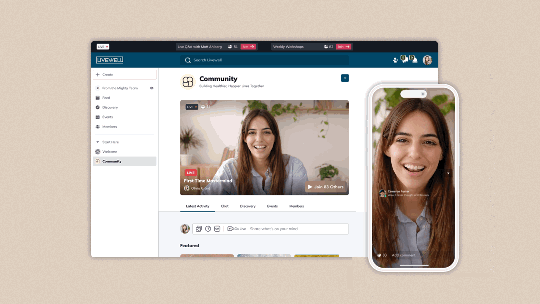
Benefits of virtual events
There are a ton of benefits to virtual events–whether it’s completely virtual or just has a virtual component to it. Here are some of them:
Eliminate logistics: No booking hotels. No badges or billets. You can just focus on creating the best event possible without logistics.
Accessible: By hosting the event online, it’s possible for people around the world to attend, engage, and build relationships––expanding the geographic and cultural diversity of participants, quality of presenters, and reach of sponsors. It’s also accessible for those with a disability who might not be able to attend an in-person event.
Flexible time options: Unlike an in-person event, a virtual event isn’t required to pack everything into one full day. It can create more value for attendees by staging out the information, networking, and other benefits of an event over multiple days or interactions.
Affordable: If you choose, a virtual event lets you offer at a lower cost to participants, making it more affordable.
Profitable: However, virtual events can also be more profitable without as much overhead–whether you offer tickets at a discount or not.
Valuable: A virtual event can be just as transformative as an in-person event, including teaching sessions, panels, and networking–depending on how you structure it.
More acceptable: A decade ago, you might have struggled to get people to see a virtual event as valuable–but one of the byproducts of the pandemic is that most of us just take them for granted now.
Unique opportunities: A virtual event actually gives you ways to reach your audience that an in-person event doesn’t; more on this below.
More tech options: Finally, it’s easier than ever to host a virtual event thanks to a whole crop of virtual event platforms out there.
Types of virtual events
The types of virtual events range from a single hour-long interview or panel over Zoom or another video conferencing platform to a virtual conference, which offers multiple hour-long interviews or panels over the course of one or more days––typically taking advantage of shorter blocks of time.
So here are some of the types of virtual events we see:
Webinars
Someone on screen teaches a skill as an audience listens and learns. Webinars are commonly used as a marketing tool as well by those building a sales funnel. A webinar is an important part of e-learning.
Conferences
Virtual conferences usually mix multiple features of virtual events and traditional conferences, including speaker, panels, and networking sessions.
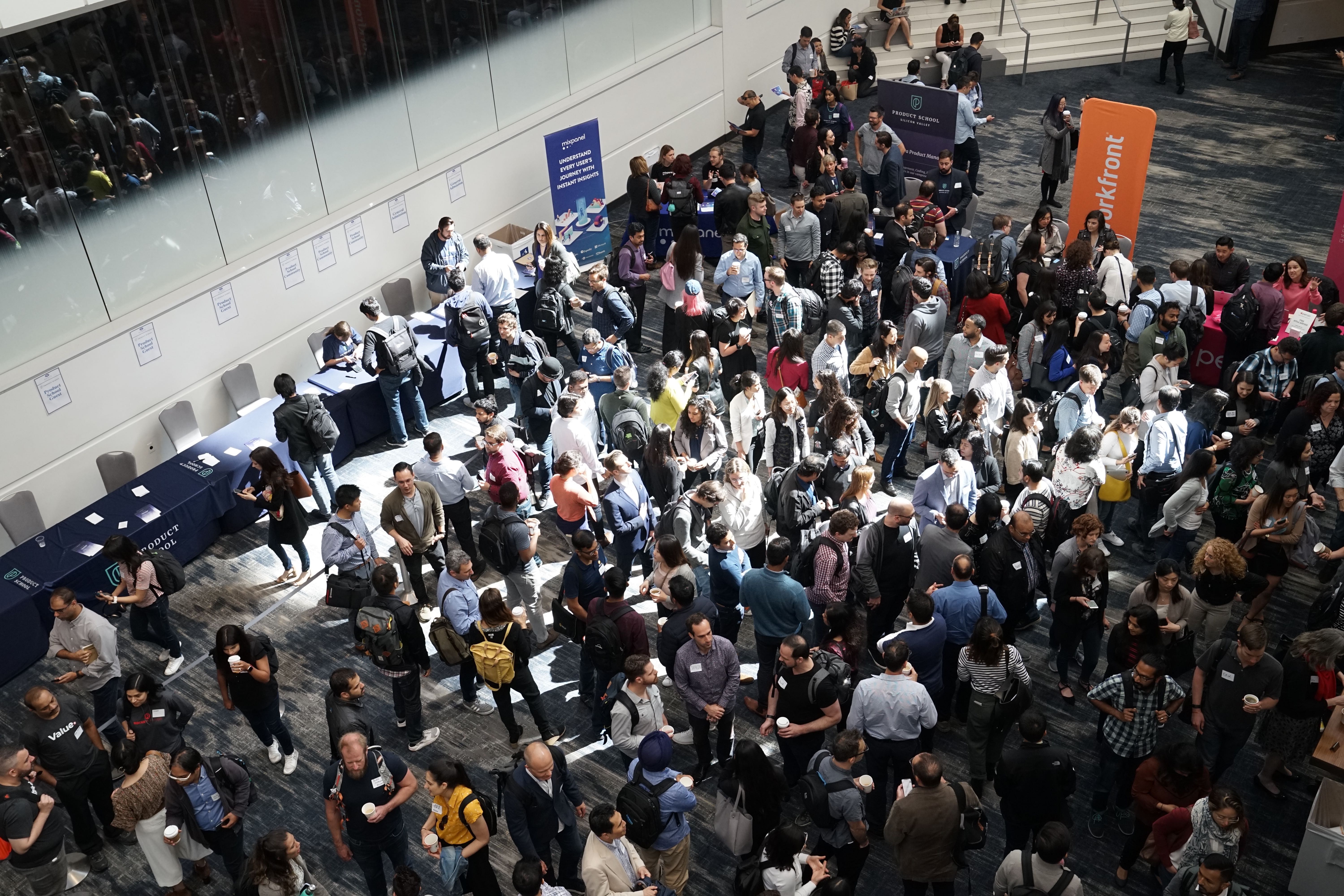
Group coaching
An altogether different type of virtual event, group coaching consists of a coach bringing a group of members together to help them achieve transformation. A group coaching event is usually in a group discussion format, sometimes with pre-recorded instructions or programming by a coach.

Mastermind
A mastermind isn’t totally different from group coaching, but while group coaching focuses on a coach-led dynamic, a mastermind brings a community of equals together to learn from one another and hold each other accountable.
Workshop
Participants come together to make some sort of progress through group learning. A workshop needs each participant working on something of their own and learning from an interactive event.
Cohort course
A cohort course is a course that’s taught live and it can make for some really cool learning. The problem with pre-recorded (asynchronous) online courses is that they have no room for live feedback or member discussion from participants. A cohort course is live, engaging, and fun. In fact, we usually teach our flagship Community Design Masterclass™ as a cohort course.

Concerts
Lots of artists have done virtual concerts, especially because the pandemic ended in-person concerts for a while. This is still a growth area, but there have been lots of successful virtual concerts on metaverse platforms. Artists that have done concerts on metaverse platforms include Travis Scott, Lil Nas X, and Ariana Grande–using platforms like Fortnite and Roblox.
Networking events
Networking events are part of any virtual conference, but they can also make great one-off virtual events. Giving people a chance to come together and meet new people in their fields or with similar interests can open up new opportunities for learning and growth.
Virtual trade shows and expos
Finally, there’s lots of cool opportunities for hosting trade shows and expos with virtual platforms to help members discover and explore.
Components of a virtual event
While no two virtual events are the same, there are some common components of a virtual event. And when you look at these, it also helps you decide what virtual event platform is going to work for your event.
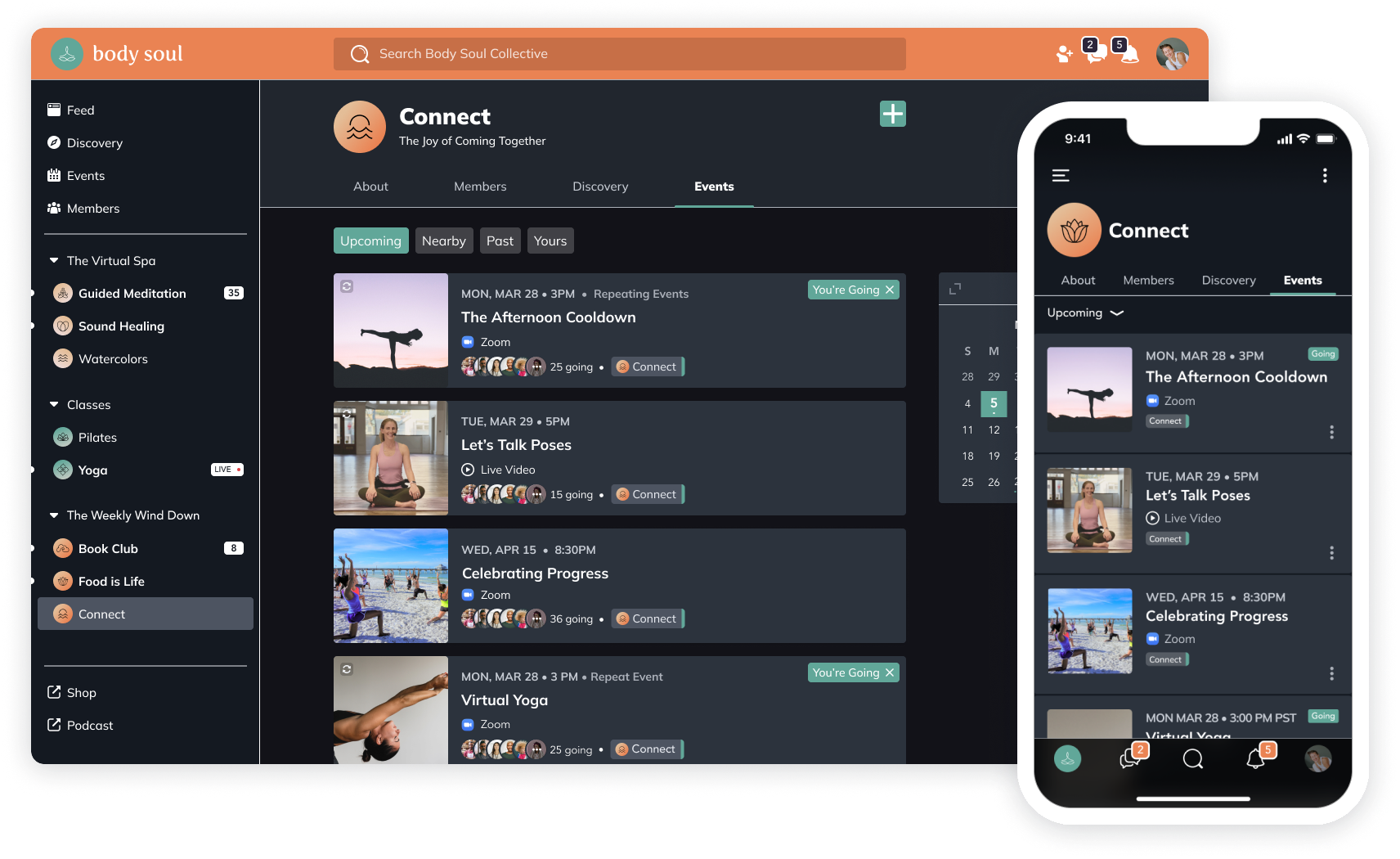
Here’s what you can be considering as you plan your event:
Before the event
Choose a platform: You’ll need to find a virtual event platform or software to host on.
Create the digital assets: Do you need a landing page? A logo? A branded app? Prepare the digital assets for your virtual event.
Plan the event: Decide what your event will be about. Plan speakers and sessions if applicable.
Create content or marketing advertising the event: If you already have members on a community platform, it’s easy to get people to show up to an event. If not, you’ll need marketing strategies to get the event in front of people.
Sell tickets: If you’re monetizing your event, you’ll probably sell tickets before. Your event platform should take care of this.

Day of the event
Registration: There could be registrations the day of. Or last minute invites. Otherwise it’s sign-ons and getting ready to host your virtual event.
Host the event: It’s go time. Ideally the day of the event should just be launching the event itself, and NOT stressing about things (especially not tech).
After the event
Analytics: A fantastic part of a virtual event is that your platform should give you detailed analytics on what worked, how many people registered, and how long they tuned in for. You can also supplement this with a survey of participants (or if you run a community, this can be done with polls or Q&A features).
Online community: As a community platform, we know that there’s nothing like an event community to keep the conversation going. If you don’t yet have a community, it’s a huge opportunity to unlock member-led growth before, during, and after your event.
Share recordings: If you recorded the content, you can share this with the people who attended.
Plan the next event!
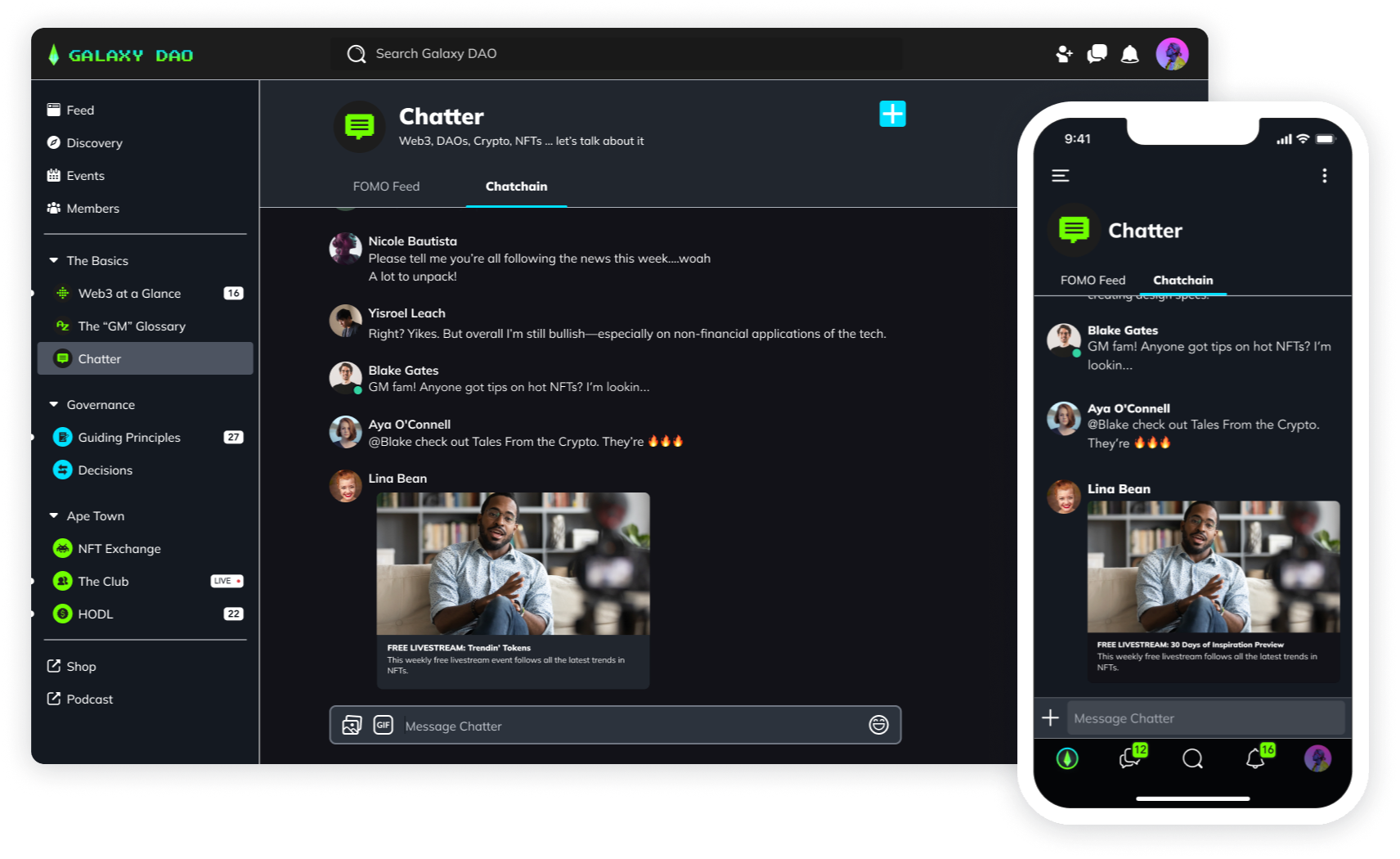
Virtual event best practices
Have a Big Purpose: We believe in having a Big Purpose for everything you do–communities, courses, and events! Understand why you’re doing the event and what members want to get out of it. A Big Purpose is about transformation, helping your members get what they need.
Choose the right platform: Honestly, having the right platform for the right event will make or break your event. Don’t expect to run a comprehensive virtual event and sell tickets on a subpar platform–you’ll end up doing twice as much work.
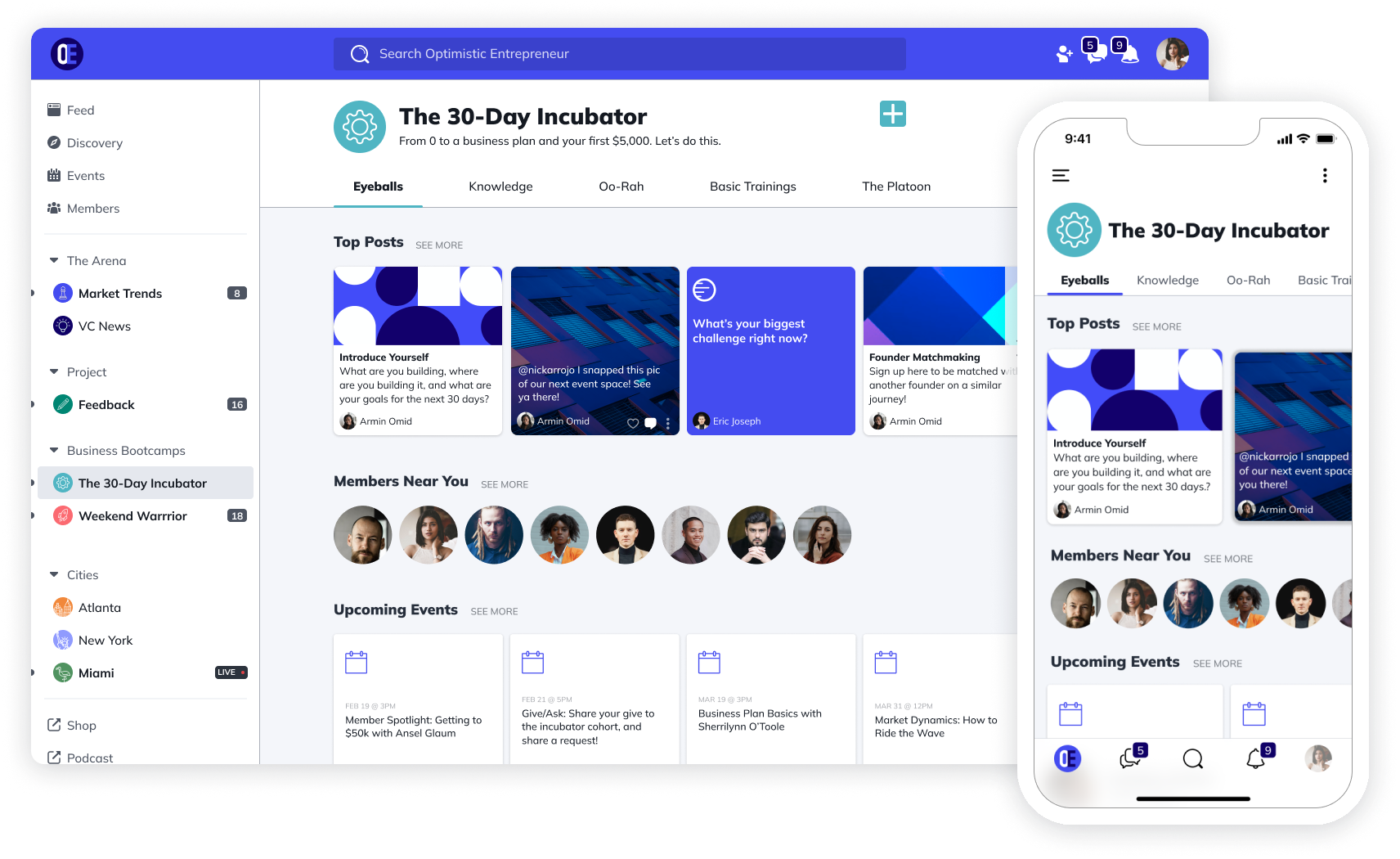
Build engagement: Ever check out at a conference? Ever fight the urge to nod off–especially during that first session after lunch? One of the downfalls of a virtual event is that people can check out, and you probably won’t notice. The solution is to build in MORE value, more engagement, and probably to take more breaks. Something like a virtual conference can even be stretched out over the course of a weekend, you don’t need to cram everything into one.
Check everything: Whether you have speakers, singers, or finger puppeteers for your virtual event, make sure to check that everything works–including mics and video.
Make sure the user experience is quality: Again, this can come down to having the right platform. But it should be easy for people to buy tickets, figure out how to log on, and engage when they want to. There’s nothing more frustrating for members than wrestling with tech when they want to just be enjoying an event.
Use your features: The unique thing about a virtual event is you can engage in unique ways. Run an instant poll during a session. Invite the audience to chat. Have a discussion board running during and/or after the event. Think outside the box of what events used to look like and get creative about using tech. More on this in a minute.
Use your data: Your platform is probably going to collect data, and a good event platform should give you lots to work with. Use the data to help understand how to make future virtual events a success.
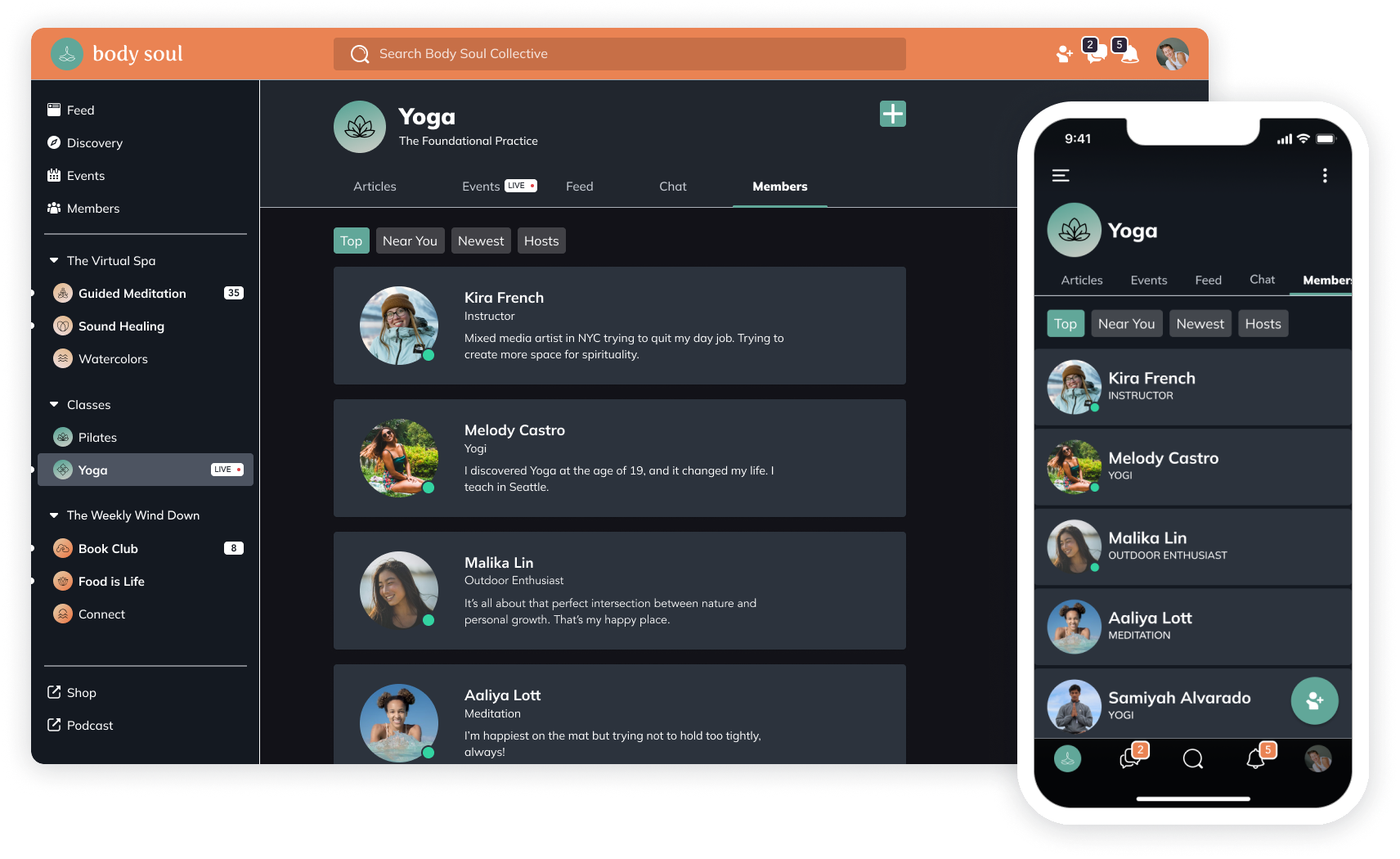
Unique opportunities from virtual events
Asynchronous AND synchronous: Live events sort of need to be… well… live. That’s how it works. But virtual events can be asynchronous–which is really cool. Discussions linked to pre-recorded courses. Forums. Pre-recorded content. You can use both asynchronous AND synchronous content to help your members transform.
More productization: There are more ways to productize and monetize a virtual event than an in-person. From turning a webinar into a course that you sell, adding a high-ticket mastermind or coaching community, or creating a premium membership app–you’ve got more to work with.
Breaking up schedules: When people travel across the state or country for a conference, you need to get it all in one weekend. But virtual events can be shorter, punchier, or divided over a period of time. Be creative to help your members get the most out of it.
More content options: You’ve got more ways to use content to delight your members.
Customization: You can customize and brand a virtual event platform to fit your brand’s style and reflect your personality. You technically have more control over the look and feel of your event when it’s virtual (the Sheraton conference rooms all look the same).
Apps: For established events, you can offer the event on your own branded app, complete with push notifications and your logo in the App Store and Google Play Store. It’s a unique experience.
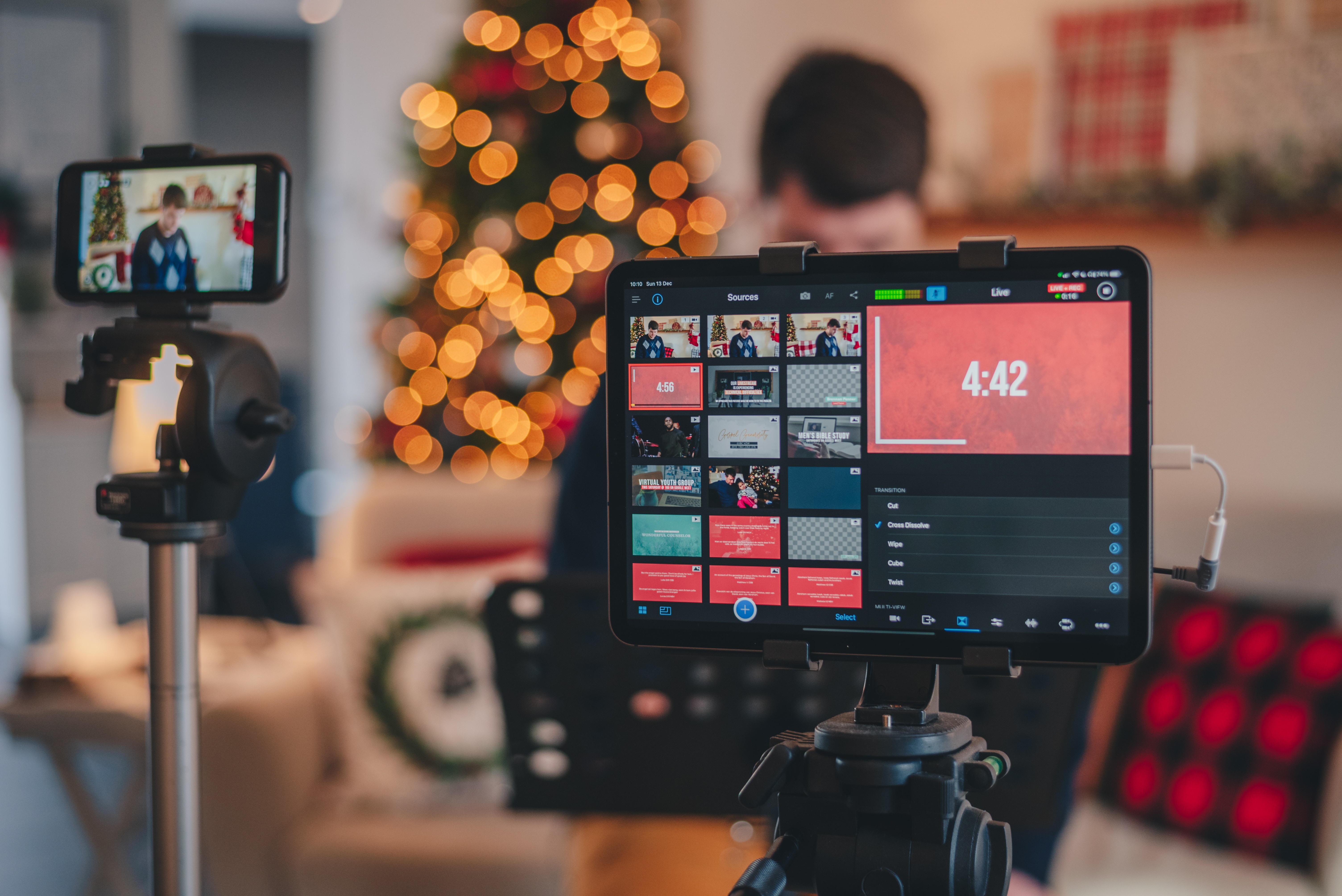
Virtual event examples
Examples of virtual events range from everyday business meetings to annual keynote events. Even Apple has moved their annual product launches to a totally virtual experience.
Trade shows, seminars, and summits can all be livestreamed, hosted, or broadcast online. Virtual conferences tend to follow the format of on-the-ground conferences, with panel discussions, keynote speakers, and even online happy hours are offered via video conference. Not everything has to be a production, either: Even an office meeting hosted via video conference can count as a virtual event.
Here are some examples of virtual events from Mighty Networks to inspire you!

Virtual conferences & retreats
LO Sister: Sadie Roberston Huff is an author and speaker, and her private membership app hosts virtual conferences and workshops where young women of faith can learn from speakers.

Virtual courses + community
Self-Care Space: A holistic therapy and wellness network for women used virtual events like short micro-courses to build their community. They made $30k almost immediately after launch.
Academy to Innovate HR: When Erik van Vulpen and Nando Steenhuis launched the Analytics in HR blog to share insights on how to use analytics for HR professionals, people wanted more. They launched a course community and it jives with their training opportunities.
How to decide if a virtual event is right for you?
Do your members have something important they need to learn
Can members benefit from opportunities to meet & learn from each other?
Do you have a budget that can cover the tech requirements?
Do you have an idea of how to get people to show up? Or do you have an existing membership that’s willing to come together for a virtual event?
Can a virtual event accomplish the same objectives a live event could?
Can a virtual event give you unique value propositions a live event couldn’t? (e.g. accessibility, lower cost, etc.)
Asking these questions can help you know if and when it’s time to get started with your virtual event. Good luck!
Now Read: How to Host a Virtual Event
Ready to start building your community?
Start a free 14-day trial to explore Mighty—no credit card required.
More like this
Join Mighty Community
Learn the principles of Community Design™ (and see them in action) alongside thousands of creators and entrepreneurs. It's free to join!

Online Courses
Creating a Course
Teaching a Course
Course Platforms
Selling a Course
Communities & Memberships
Community Platforms
Managing a Community
Building a Community
Growing a Community
Monetizing a Community
Content Creation
Creators & Entrepreneurs
Monetization
Content Creation
Starting a Business
Website Builders
Creating & Managing a Website
Events
Event Platforms
Hosting & Marketing Events
Branded Apps
Creating a Mobile App
Coaching Apps
Community Apps
Coaching
Mastermind Groups
Starting a Coaching Business
Coaching Platforms
Filter by Category
Online Courses
Communities & Memberships
Creators & Entrepreneurs
Events
Branded Apps
Coaching
Start your free trial
14 Days. No Credit Card Required.













